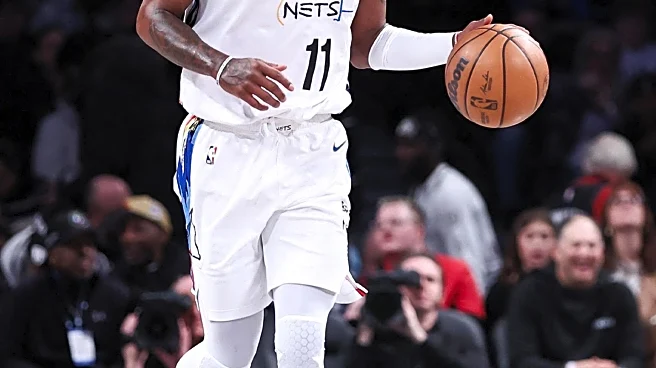What's Happening?
Irving Locker, a World War II veteran who landed at Utah Beach on D-Day, has become a published songwriter at the age of 101. His song, 'If Freedom Was Free,' was released by Big Machine Label Group and CreatiVets, a Nashville-based nonprofit that assists
veterans in processing trauma through the arts. Locker collaborated with Texas singer-songwriter Bart Crow and duo Johnny and Heidi Bulford on the track. The song's chorus emphasizes the cost of freedom, a message Locker has shared in lectures from classrooms to the White House. Locker, who resides in The Villages, Florida, expressed his thrill at the opportunity to write a song, highlighting the importance of music in his life. He and his wife, Bernice, continue to enjoy dancing, a testament to his active lifestyle despite his age.
Why It's Important?
The release of 'If Freedom Was Free' underscores the ongoing contributions of veterans like Irving Locker to American culture and society. By channeling his wartime experiences into music, Locker provides a poignant reminder of the sacrifices made for freedom, fostering appreciation among listeners. This initiative by CreatiVets not only aids veterans in healing but also enriches the arts with authentic narratives. Locker's story exemplifies resilience and the enduring impact of veterans on public consciousness, potentially inspiring others to explore creative outlets for personal expression and healing.
What's Next?
The collaboration between CreatiVets and veterans like Irving Locker may lead to further projects that highlight the stories and talents of those who served. As Locker continues to share his message through music and lectures, there may be increased interest in veteran-led artistic endeavors. Organizations supporting veterans could expand their programs to include more creative opportunities, fostering a broader understanding of the veteran experience and its relevance to contemporary issues.
Beyond the Headlines
Locker’s journey from a WWII veteran to a songwriter at 101 years old highlights the transformative power of art in addressing trauma and preserving history. His story raises awareness about the importance of supporting veterans in finding new avenues for expression and healing. It also prompts reflection on the cultural and ethical dimensions of freedom, encouraging society to honor the sacrifices made by service members.















